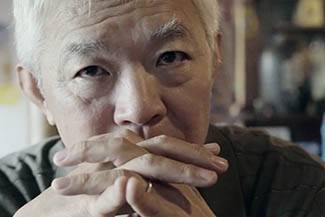When To Contact A Low Vision Doctor: When You Can’t See To Do What You Want To Do
 When you break your leg, you feel the pain of the fracture and visit a doctor to repair the broken limb. When you hurt your back, you go to a chiropractor to relieve the intense pain. But what happens when you experience vision loss without even noticing it? How do you know when to visit a low vision doctor if you don’t feel any pain?
When you break your leg, you feel the pain of the fracture and visit a doctor to repair the broken limb. When you hurt your back, you go to a chiropractor to relieve the intense pain. But what happens when you experience vision loss without even noticing it? How do you know when to visit a low vision doctor if you don’t feel any pain?
What Are the Common Symptoms of Vision Loss?
Some signs of vision loss often go unnoticed until the symptoms are far along. Signs of vision loss typically include the following:
- Blurry vision
- Cloudy vision
- Decreased peripheral (side) vision
- Difficulty seeing clearly at night
- Frequent headaches
- Reduced central vision (what you see straight ahead)
- Seeing halos around lights
- Sensitivity to light
Especially in its earlier stages, certain signs of low vision can easily be attributed to other things. Frequent headaches can be triggered by stress or excessive computer use, light sensitivity can develop from migraines, anxiety, or certain medications, and even blurry vision may be the result of an eye infection, exhaustion, or dehydration.
When Low Vision Becomes Serious
 So how can you know when your symptoms are serious? One way to know is by paying attention to how changes in vision affect your daily life. If driving at night becomes increasingly difficult, if you notice that headaches are becoming persistent, or if reading or watching TV isn’t enjoyable because the images are unclear, it may be more than just a temporary symptom.
So how can you know when your symptoms are serious? One way to know is by paying attention to how changes in vision affect your daily life. If driving at night becomes increasingly difficult, if you notice that headaches are becoming persistent, or if reading or watching TV isn’t enjoyable because the images are unclear, it may be more than just a temporary symptom.
Low vision is a significant visual impairment, which isn’t corrected by simply wearing glasses or contact lenses. It not only impacts your everyday activities, but can cause long-term vision loss – even blindness, if left untreated – so if doing what you love is becoming hard because of poor vision, it’s time to visit a low vision doctor.
How Does A Low Vision Doctor Help?
A low vision doctor focuses on maximizing your remaining vision to help you continue doing what you enjoy. Dr. Jill Mogil does this with the help of low vision glasses and devices. These tools magnify images, allowing you to see details for sharp, clear vision.
If vision loss makes it hard for you to read your favorite book or a restaurant menu, microscope glasses can help. They enlarge the text so you can enjoy reading once again. Have fun dining out with friends without asking for help reading the menu. It’s all about living an independent life in the best way possible!
 When it comes to the people closest to you, there’s nothing more painful than being unable to recognize them. Low vision can make it hard to recognize faces, so when your grandchildren come to visit, of course, you want to see their smiling faces in detail. Gateway Low Vision can help you with that by providing you with the right low vision devices.
When it comes to the people closest to you, there’s nothing more painful than being unable to recognize them. Low vision can make it hard to recognize faces, so when your grandchildren come to visit, of course, you want to see their smiling faces in detail. Gateway Low Vision can help you with that by providing you with the right low vision devices.
If you love the freedom and independence that driving offers, vision loss can make that difficult. Your low vision optometrist can fit you for bioptic telescope glasses. These devices magnify objects like street signs and traffic lights. These elements of your environment appear sharper, so you can see them clearly and can continue driving safely, even while driving at night.
If you or a loved one is experiencing any symptoms of vision loss, schedule a visit with Gateway Low Vision. Dr. Jill Mogil will perform a thorough eye exam and talk to you about how to maximize your remaining vision to help you continue doing the things you want to do, for the best quality of life.
